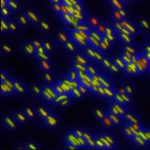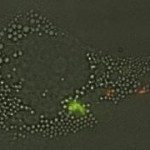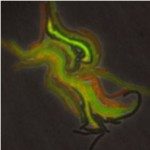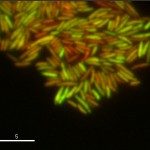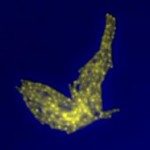Giulia Manina is a Research Director at the Institut Pasteur in Paris, where she heads the Microbial Individuality and Infection Unit. She earned her PhD from the University of Pavia, Italy. During her doctoral studies, as part of the EU FP6 New Medicines for Tuberculosis Consortium (NM4TB), she identified the mechanism of action and resistance of a new potent anti-tubercular drug class (benzothiazinones), now in clinical trials. Her work was recognized with the Novartis Prize in 2009. After a brief stint at the Institut Pasteur within the NM4TB framework, she joined the Swiss Federal Institute of Technology (EPFL), Switzerland, for postdoctoral research. At EPFL, she investigated mycobacterial phenotypic heterogeneity in the laboratory that pioneered the single-cell studies of mycobacteria (Prof. John McKinney), and her contributions were recognized with the Swiss TB Award in 2015. Later in 2015, Giulia started her own research group at the Institut Pasteur, establishing a cutting-edge program on tuberculosis persistence at the single-cell level. She obtained her HDR diploma in infectious diseases from Paris Descartes University in 2017. Her work integrates molecular and cell biology, microsystems engineering, live-cell imaging, and omics approaches to explore tuberculosis persistence and mycobacterial survival mechanisms, as potential sources of diagnostic biomarkers and therapeutic targets. Her lab is also involved in tuberculosis drug discovery and the development of subpopulation-based biomarkers. She is a partner in national and international consortia, including the IMI European Regimen Accelerator for Tuberculosis (ERA4TB), and she coordinates the French ANR Consortium TREATABLE, which brings together academic and industry partners to advance technology development and new tuberculosis control strategies.
Click to view graph
Connections
Click to view timeline
Timeline
Transversal Projects
Projects
CV
Publications
Download-
2024Dynamic microfluidic single-cell screening identifies pheno-tuning compounds to potentiate tuberculosis therapy., Nat Commun 2024 May; 15(1): 4175.
-
2022Microfluidic dose-response platform to track the dynamics of drug response in single mycobacterial cells, Sci Rep 2022 Nov; 12(1): 19578.
-
2022RNase E and HupB dynamics foster mycobacterial cell homeostasis and fitness., iScience 2022 May; 25(5): 104233.
-
2021Listeriolysin S: A bacteriocin from Listeria monocytogenes that induces membrane permeabilization in a contact-dependent manner., Proc Natl Acad Sci U S A 2021 Oct; 118(40): .
-
2021Single-Cell Analysis of Mycobacteria Using Microfluidics and Time-Lapse Microscopy., Methods Mol Biol 2021 ; 2314(): 205-229.
-
20206,11-Dioxobenzo[f]pyrido[1,2-a]indoles Kill Mycobacterium tuberculosis by Targeting Iron-Sulfur Protein Rv0338c (IspQ), A Putative Redox Sensor., ACS Infect Dis 2020 11; 6(11): 3015-3025.
-
2020Delving Into the Functional Meaning of Phenotypic Variation in Mycobacterial Persistence: Who Benefits the Most From Programmed Death of Individual Cells?, Microbiol Insights 2020 ; 13(): 1178636120945304.
-
2020Chemical, Metabolic, and Cellular Characterization of a FtsZ Inhibitor Effective Against Burkholderia cenocepacia., Front Microbiol 2020 ; 11(): 562.
-
2019Preexisting variation in DNA damage response predicts the fate of single mycobacteria under stress, EMBO J. 2019 Oct;:e101876.
-
2016Phenotypic Heterogeneity in Mycobacterium tuberculosis, Microbiol Spectrum 4(6):TBTB2-0021-2016.
-
+View full list of publications

